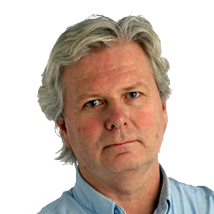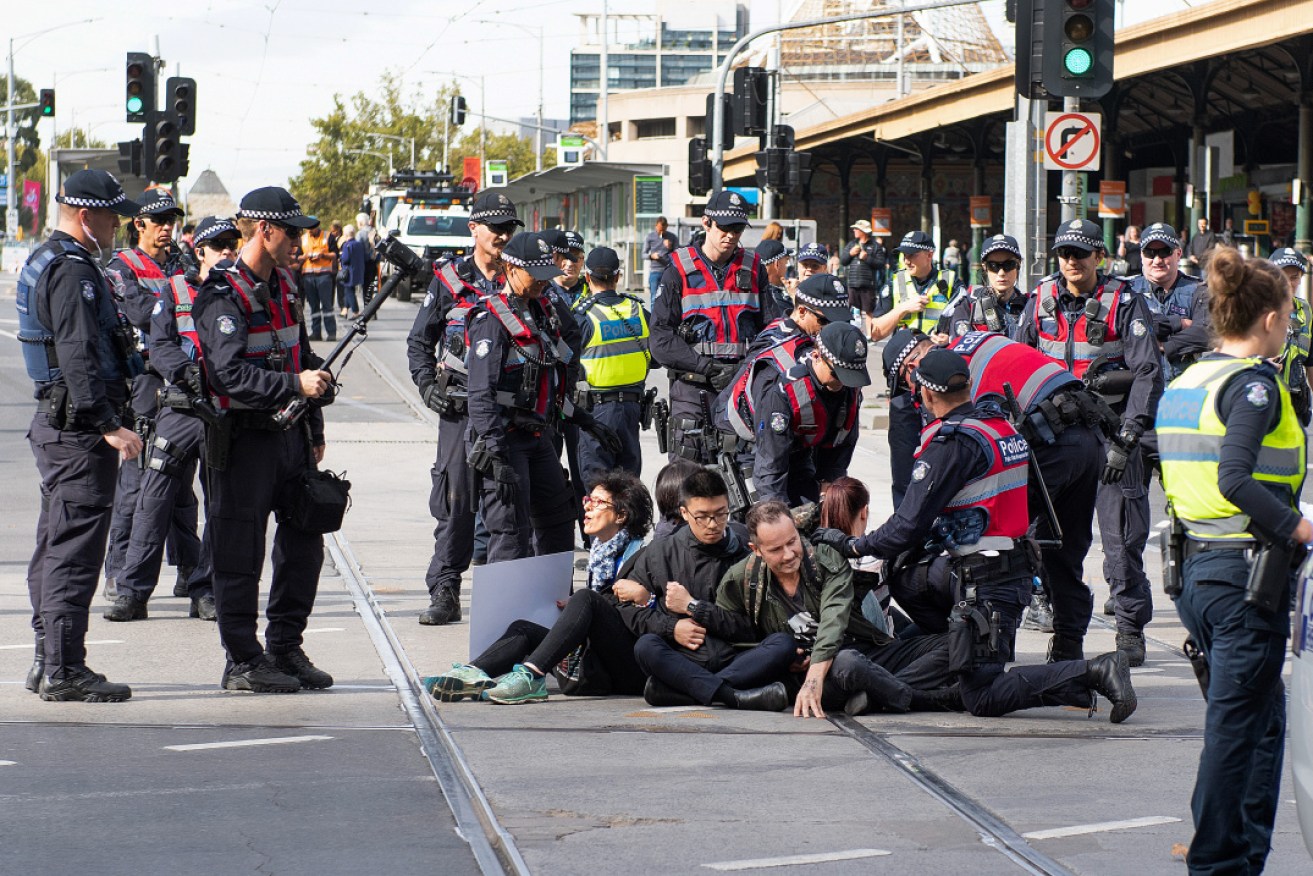Whether working in an abattoir makes you more likely to be a vegan


"The vegans want people to think beyond the plate, take a journey with the animal. It involves a giant shift in culture." Photo: AAP
One would think it would be uncomfortably hard to look into the eyes of a lamb and not feel anguish at what becomes of that life.
If everyone knew the road from field to factory to table, would anyone take that first bite of the roast or the chop?
The heart and the mind might say no. Let the lamb roam free. And the cow, and the chicken.
The demonstration by vegans in the middle of the road outside Melbourne’s Flinders Street Station last week might have disrupted traffic and people’s routines, but would it have disrupted the wiring in people that food is food? And animals are food?
That packaged prime beef on the shelf does not have a face at the time of buying, nor at the time of consumption.
What a person chooses to eat is their intensely personal choice, as is the next man’s or woman’s. The vegans want people to think beyond the plate, take a journey with the animal. It involves a giant shift in culture.
David Killoren, a research fellow at the Dianoia Institute of Philosophy, Australian Catholic University, wrote in The Age that the activists’ argument was straightforward.
‘‘They argue that consumption of animal products fuels an industry that is cruel and exploitative, killing many tens of billions of animals annually, and that mere gustatory pleasure cannot justify our support for such an industry – especially given that nutritious and delicious vegan food is becoming ever more abundant to serve the growing vegan market,” Mr Killoren wrote.
Given the place of the barbecue in the Australian way of life – which is akin to sacred reverence – to publicly demand that the animal food thrown on it be banished from said Australian way of life is extreme, to put it mildly.
The civil disobedience is the mark of one saying to another, ‘You’re not listening to me. Maybe now you will’. And though 40 have been charged for offences arising from the protest, Premier Daniel Andrews believes that to take it further, such as paying the costs of the police presence, is not worth the effort.
“If you chase these people to pay the costs of their protests, does anybody seriously believe they will be writing a cheque to the government?” he said.
Few know the processes by which their food lands in the supermarket or on their plate. If one did, would they choke?
‘The stench of death was overpowering’
I’ve worked in an abattoir. I’ve stood centimetres from the heads of cows, killed just seconds before, as they make their lifeless, body-less way on a large hook around the conveyor belt to their place of despatch farther up the chain.
I was 16 years old. I was desperate for my first surfboard. I needed money. A friend’s elder brother worked at an abattoir in Newcastle.
If you turned up early in the morning, he said, you could get lucky with casual work. We did. It was my first job. The stench of walking into the place was overpowering, but not so overpowering to make me turn around. The rank smell of death and the processing of that death seeped from the stones, oozed along the ground, sat heavy in the air.
I was positioned to stand just down the line from the killing floor, which was a mezzanine about 50 metres away where the cows went up on four legs, were given a giant bolt of death, and sent down the chute to be decapitated.
The head came my way on an overhead chain conveyor, and the rest of the body went another way. My friend collected the discarded hooks and swept the blood down the drains.

“The rank smell of death and the processing of that death seeped from the stones, oozed along the ground, sat heavy in the air.” Photo: Getty
My task was to remove the grass from the head. I was given a high-pressure hose, much like I imagine a fireman would use. My arm and wrist soon ached from holding it at the right height and angles and controlling the force of water in the direction of the head. Every last stalk and blade of grass had to be removed – from the ears, the mouth, the nose, the eyes, the top, the sides and under. It was hard work.
And the heads kept coming. It was after all, a factory. Most of the time I think I passed muster but once. It’s such a vivid memory. One of the permanent workers, who must have been from quality control, came storming towards me carrying a head, one of my heads. He shouted above the abattoir sounds of machinery, bolts and once live animals’ final sounds, ‘’What do you think that is?”
Now I thought back then I had a good sense of sardonic humour (for a teenager), but even I could sense this wasn’t the place for it or a stab at irony. He wasn’t too happy. Two heads were staring at me – one glaring, one vacant. I feigned ignorance.
“Do you call that washed?” he yelled above the noise, thrusting the head towards my face and pointing out the criminal pieces of grass I had missed. I might have said sorry. I can’t remember. Most likely I said nothing. He was right. I could see I had missed a few blades.
And since there wasn’t room, or time, to respike it, he carried it back with him under his arm, presumably to give it a quick wash himself.
Duly chastened, I turned back to the line of death heads, released the water, only for the next head to fall onto the ground.
It amazes me still how whatever revulsion I might have been feeling was submerged by the importance of picking up that freshly killed head and putting it back on its spike and getting it clean before it hit the quality controller.
I lasted but a few weeks, until I had enough money for the surfboard, and then I was gone.
The experience did not turn me vegan. I suspect I shut one door so that I could live in the other.
And what did the heads become? Why, we sprinkled those heads on our gardens. They were blood and bone.








